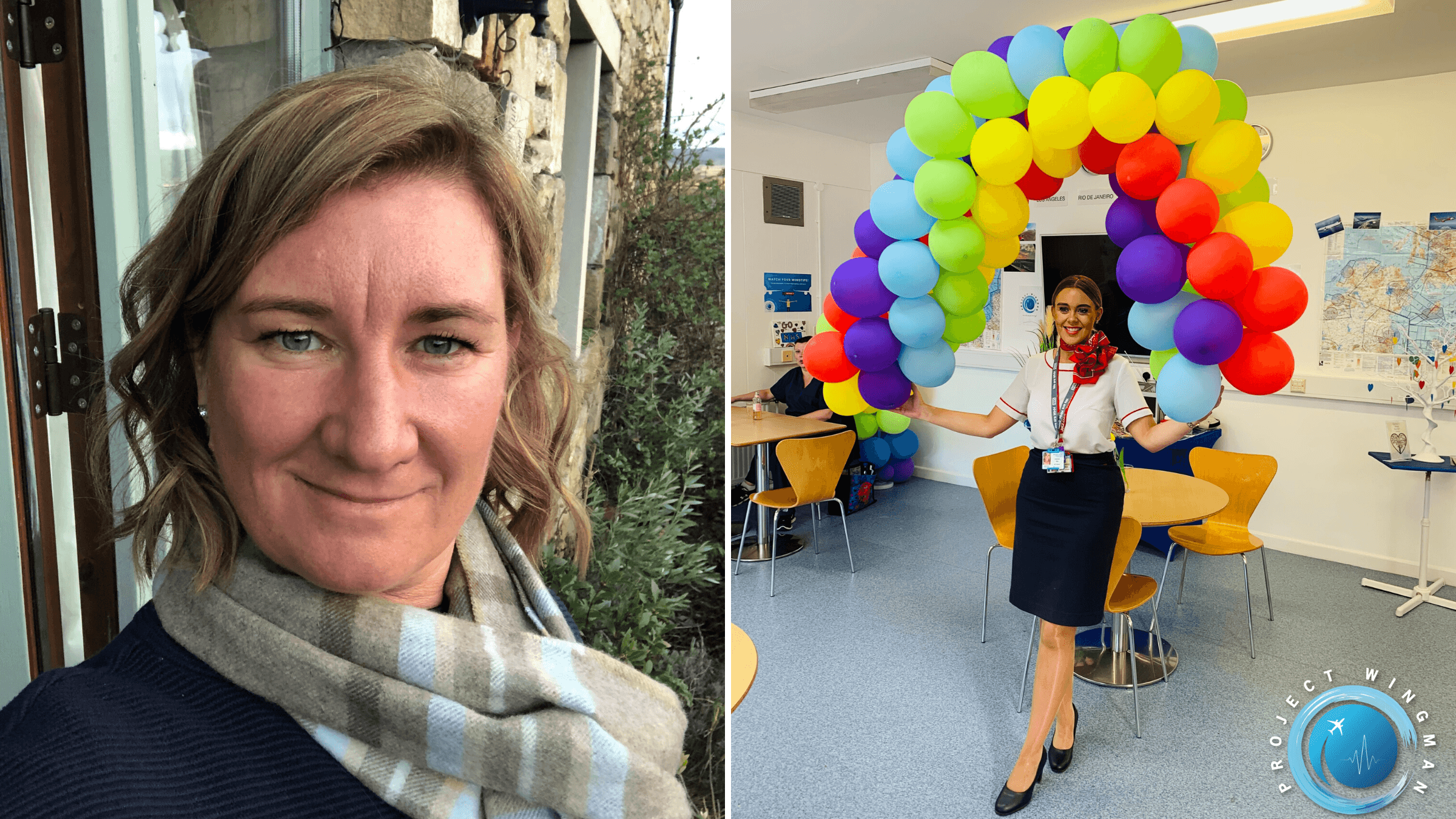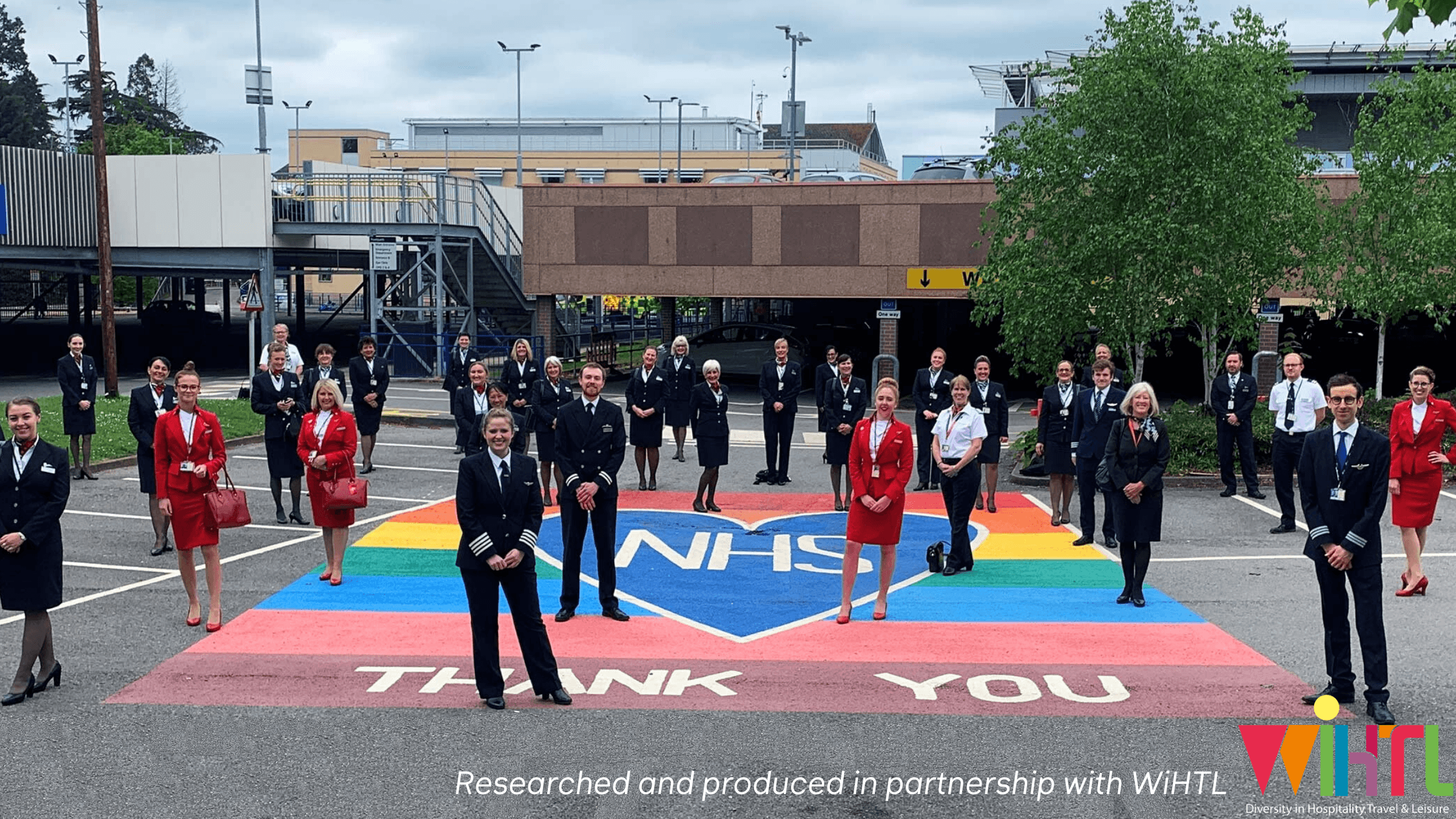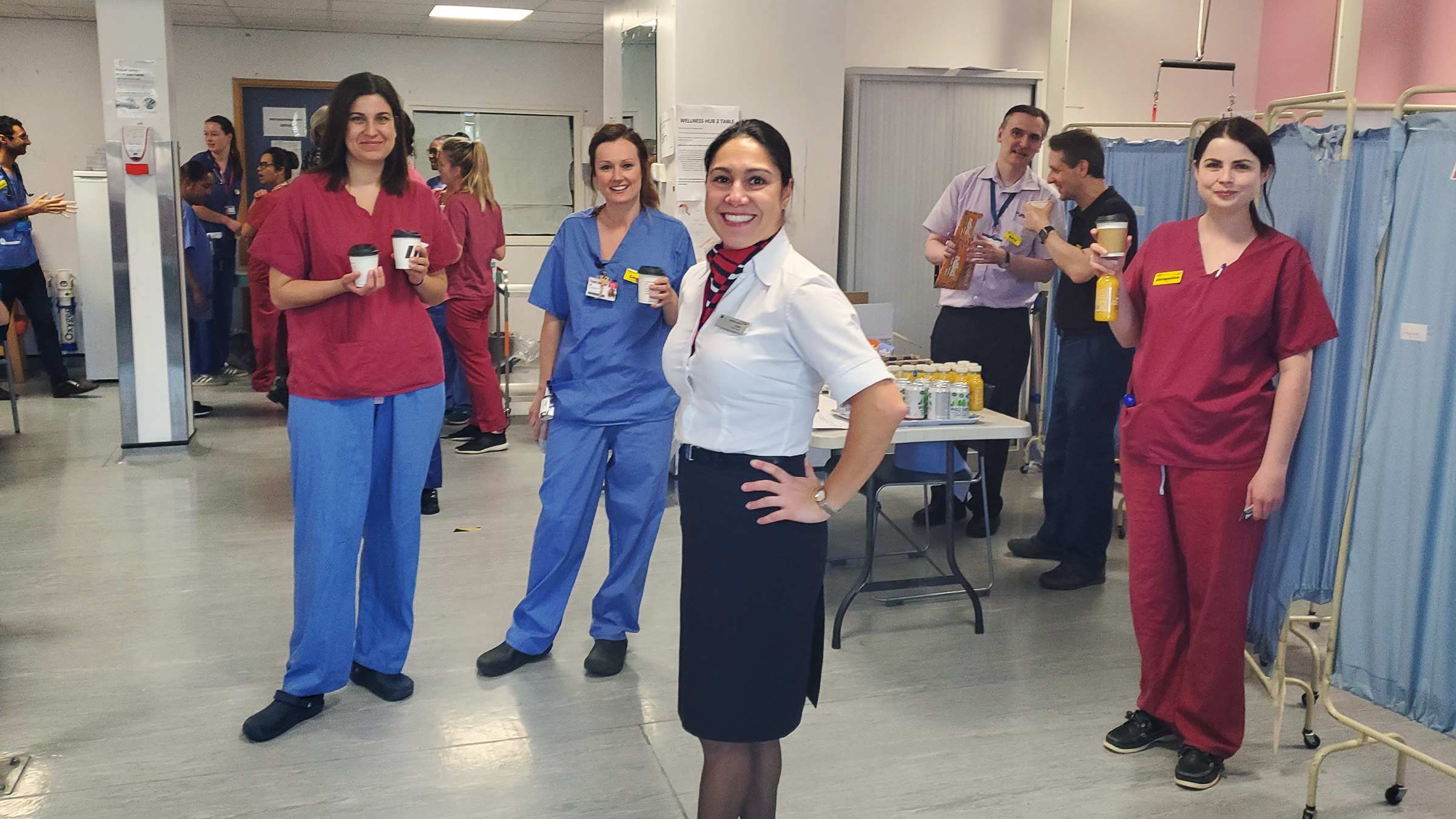This week, from her remote North Scotland home, I caught up over Zoom with Captain Emma Henderson, the co-founder of Project Wingman. The last time Emma and I crossed paths was when MBS conducted an interview with her, for the inaugural WiHTL Women to Watch Index in 2019, as an impressive female role model who could inspire other women to pursue a career within the hospitality, travel and leisure sectors.
From our conversation, it was clear that Emma’s status as an HTL role model is richly deserved – not just as one of a small number of female pilots in the travel sector, but now in establishing Project Wingman, an initiative providing critical support to those working on the frontline in the NHS during these most challenging times.
“I think the success of the project can be attributed to the fact that there was just a real need for it,” Emma tells me. “From the NHS side, staff needed a place to take a break, be in a relaxing environment and have a place to switch off away from the wards. The NHS has a wellbeing service but it was completely overwhelmed, and there was a real need for someone to come in and take some of the pressure off. We just wanted to provide a place where staff could feel valued, cherished and looked after – a space to unwind, decompress and de-stress before, during and after hospital shifts”
“But there was also a need from our side,” she explains. “A lot of airline staff who had been furloughed or laid off were sat there thinking: what am I going to do with myself? I certainly was. And you can either sit there dwelling on the situation or you can do something practical.”
It was this ‘can-do’ attitude that motivated Emma, together with the pilot Captain Dave Fielding and the clinical psychologist Professor Rob Bor, to launch Project Wingman in March – and after only eighteen days of planning, their first Project Wingman space had opened at the Whittington Hospital in London, offering a first-class lounge experience to front-line NHS staff.
Fast-forward to today, and Emma is running a project spanning the UK and US, with 60 hospital ‘first-class’ lounges, 45 back office staff and 5,500 volunteers drawn from 25 different airlines.
Together with thousands of furloughed pilots and cabin crew from the aviation industry who are giving their time as volunteers, Project Wingman has benefited from countless donations from consumer businesses looking to do their bit. Local restaurants, and businesses such as Scotmid and Greene King have donated food, refreshments and furniture to meet the lounges’ most basic needs. At the same time, Bose has donated sound systems, GoldKey Media has provided newsstands and high-value beauty boxes and local events companies have dressed the lounges with flower walls and plants to turn hospital spaces into oases of calm.
It is a testament to the aviation industry that during this most worrying and uncertain time for their own sector, industry employees have rushed to get involved, stepping up to the plate to do their bit for our NHS. Emma and I discuss this. “Airline teams – especially cabin crew – are used to working in high-pressure environments,” she says, “caring and serving people who are travelling for many different, sometimes traumatic, reasons. We’re used to high emotions. We’re used to being needed. Crew are all trained in human factors and how to communicate with colleagues operating in stressful situations.” Using these people skills, Project Wingman teams are able to talk, empathise and offer support to NHS workers dealing with the pressures brought about by the pandemic.

Emma is bursting with anecdotes about the project’s success. “We’ve hosted hen parties in our lounges,” she tells me, “and birthday parties for NHS staff who were unable to return home to their families at the height of the crisis.” In a particularly inspiring story, Emma relays a conversation she had with a nurse, who told her that the first time she’d laughed on shift during Covid-19 was in one of her lounges.
Project Wingman looks set to have a real material impact on the aviation sector as a whole. Notably, the project has united the sector. While this is a grass-roots initiative, not coming from any one airline, the charity has been widely promoted and celebrated across the industry. Moreover, Project Wingman has increased the networks of everyone involved. As Emma tells me: “the personal and professional relationships that have formed through this project will last a long time.”
On top of this, those involved will be returning to the sector armed with new skillsets and fresh perspectives, adding value to their businesses in previously unforeseen ways. “It’s fantastic,” Emma says, “some of our volunteers have received formal resilience training from hospital trusts, so they now have a new qualification for their CV.” Others have taken up leadership positions at Project Wingman that will have a lasting impact on their careers. “Our back office ‘staff’ have fallen into their roles, leading PR, HR, recruitment and handling donations. It’s been wonderful to see each person own their own project and develop new skills.”
The same is true of those working in the hospitals. “You wouldn’t automatically assume that a trainee pilot could run a hospitality project in a hospital,” Emma says, “but I’ve witnessed young members of our sector rising to the challenge and leading teams, which will give them the opportunity to knock on doors they might have thought unavailable to them.”
Emma tells me how this experience has been for her. “It’s been fascinating. As I’m a captain, there’s a strong leadership element to my role – but project managing something of this scale has been a real learning curve. There was a period when I was regularly working 16-hour days, but I’ve learnt some balance now!”
Project Wingman is a grass roots organisation at its core: a group of people who saw a need, came together and made things happen. I wonder what advice Emma has for anyone looking to drive change in a similar way. She tells me: “my three pieces of advice would be: communicate with your team regularly; don’t micromanage, but instead empower those on board; and think big. When I wanted something for Project Wingman volunteers I just went straight to the CEO of the company that could help me!”
Looking ahead, Project Wingman looks set to have a lasting impact on how hospitals look after their own staff. As we move into the next phase of the crisis, the lounges are scaling down to smaller formats, but the project is far from slowing down. There is lots more in the pipeline, including outreach work, human factors training for NHS staff, peer support for volunteers and further collaboration with the NHS.
In the midst of much uncertainty for large parts of our sectors, it was wonderful to hear a ‘good news’ story – and be energised by the ambition and scale of this phenomenal project, and the impact that leaders in our sector can have for good when they come together. It is, as Emma told me, “not bad for two pilots and the back of a piece of paper!”
Tea Colaianni, the Founder and Chair of WiHTL who first introduced me to Emma tells me how inspired she is by this next chapter in Emma’s story: “I first met Emma when she volunteered to be filmed for a video we were producing at WiHTL to showcase the diverse and exciting careers that exist across the hospitality, travel and leisure industry – in her case, fulfilling a childhood dream to become a pilot. She came across as one of the most authentic people I have ever encountered – and has always been giving back to the sector, and has been an incredible role model. I was particularly moved when Emma told me stories of mothers and daughters she had encountered in her cockpit: Emma commented: ‘If a little girl can look at a captain and say “I could be that”, then that’s got to be a good thing hasn’t it?’
“Her sense of responsibility to give back shines through her words: ‘Be grateful for any luck you receive and pass it on to anyone else you can.’ And this is exactly what she has been doing since the pandemic outbreak. With Covid-19 leaving airports almost empty and planes at a standstill, members of the aviation industry who have been grounded, furloughed or made redundant have rallied together to deploy their time and skills to give frontline NHS staff respite and refreshment while on shift. Emma has used her time being furloughed herself to continue to inspire not just little girls on a plane dreaming of becoming a pilot, but all of us.”









